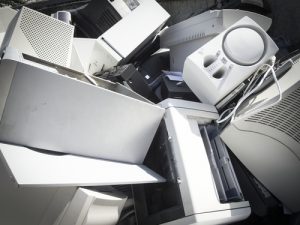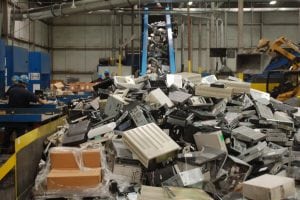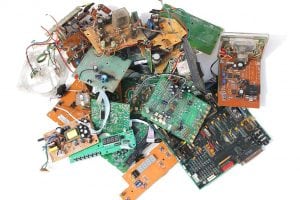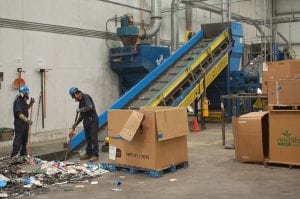
Asian governments continue to tighten their restrictions on imports of scrap material, including a temporary ban on plastic in Malaysia.
E-Scrap News magazine is the premier trade journal for electronics recycling and refurbishment experts. It offers updates on the latest equipment and technology, details trends in electronics recycling legislation, highlights the work of innovative processors, and covers all the other critical industry news.
Sign up for our free weekly e-newsletters to receive the latest news directly.

Asian governments continue to tighten their restrictions on imports of scrap material, including a temporary ban on plastic in Malaysia.
 Consumers paid record prices for Apple’s iPhone X. A recent analysis shows the refurb market is doing the same.
Consumers paid record prices for Apple’s iPhone X. A recent analysis shows the refurb market is doing the same.
Loss Protection & Investigations of Fresno, Calif. and ShredSmart of Prospect, Conn. have achieved NAID certifications for physical destruction of hard drives.
SectorSeven of Alexandria, Minn. has achieved R2:2013, ISO 9001, ISO 14001 and OHSAS 18001 certifications. Tri-Star Electronics Recycling of Nashville, Tenn. has achieved R2:2013, ISO 14001:2015 and OHSAS 18001:2007 certifications.
Visit our archive to view previous editions of the scorecard.
 The Basel Action Network is pushing Hong Kong authorities to take action against a multinational company that has been accused of e-scrap import violations.
The Basel Action Network is pushing Hong Kong authorities to take action against a multinational company that has been accused of e-scrap import violations.
 Projects advancing e-scrap recovery will receive funding through a federal initiative to support U.S. manufacturing and energy efficiency.
Projects advancing e-scrap recovery will receive funding through a federal initiative to support U.S. manufacturing and energy efficiency.

Material at the Mesquite, Texas ECS Refining facility. E-Scrap News file photo.
E-scrap processor Dynamic Recycling has signed a deal to buy assets from bankrupt company ECS Refining. Meanwhile, environmental and cost complications are popping up around facility cleanup efforts.
 Several minerals used in electronics were recently deemed critical to the economic and national security of the U.S.
Several minerals used in electronics were recently deemed critical to the economic and national security of the U.S.

Workers at the Mesquite, Texas ECS Refining facility. E-Scrap News file photo.
This story has been updated.
A national e-scrap processor that previously filed for Chapter 11 bankruptcy will see its assets sold and over 300 jobs terminated under a plan recently approved by a federal judge.
Arkansas Records Management of Hot Springs, Ark.; Highland Recycling and Shredding of Highland, Ill.; PC Disposal.com of New Century, Kan.; SafeGuard Document Destruction of Ft. Lauderdale, Fla.; and Shred-X Secure Destruction of Yatala, Australia have achieved or renewed their NAID certifications for physical destruction of hard drives.
Visit our archive to view previous editions of the scorecard.
George Hinkle has taken the reins of the Institute of Scrap Recycling Industries’ electronics division. In a recent interview, he discussed the e-scrap committee’s priorities for action, including reuse specs and prevention of battery fires.

